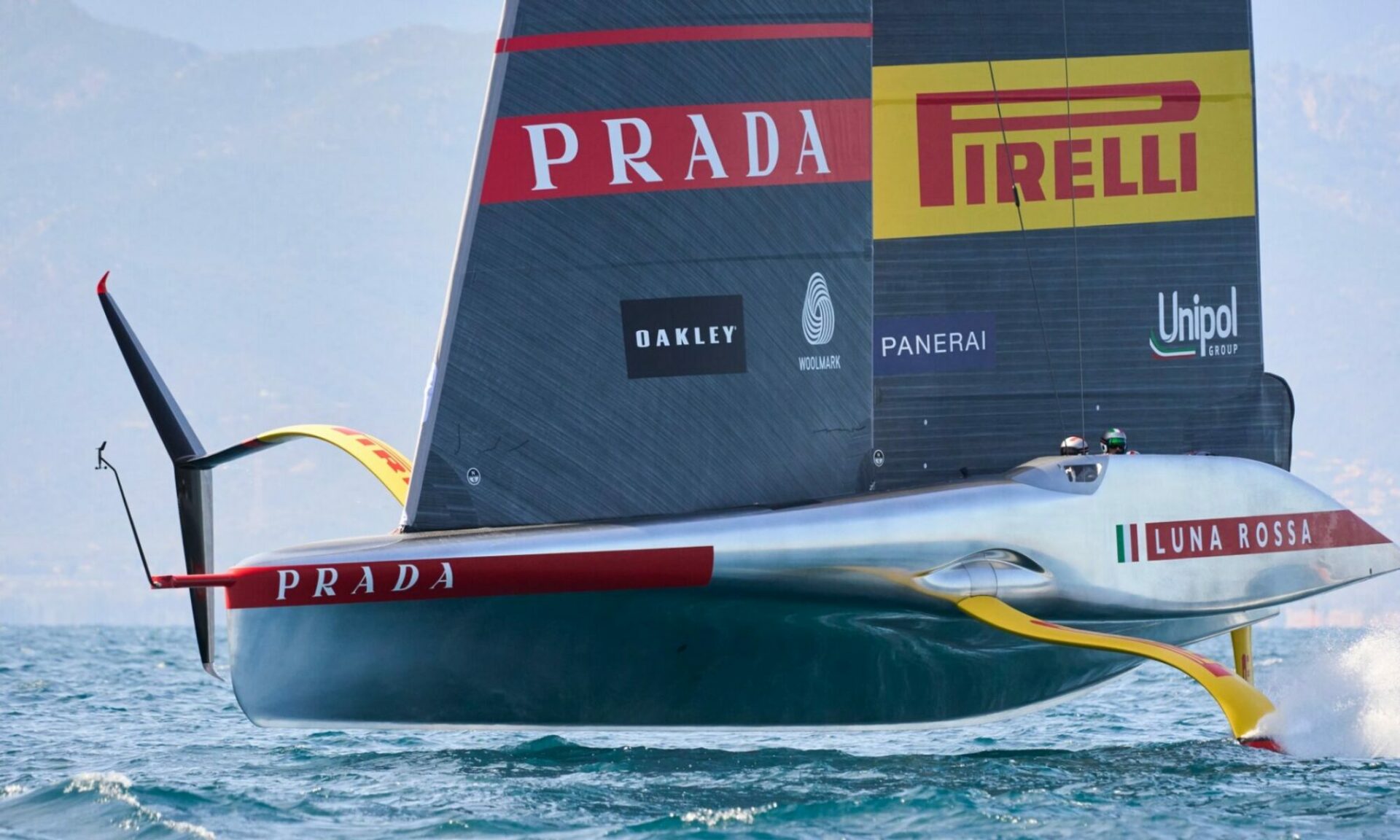
by S. Invernizzi
Lying and half asleep on the edge of a cabin cruiser, Dr. S. sailed under a light afternoon breeze; suddenly a roar of thunder broke the rhythmic rustle of the wind and water, causing our man to jump as he scanned the sky in search of a low- flying military jet.
An unexpected wave caught him unprepared, the dip in the cool waters sealed the rude awakening ; from the surface of the water he could make out a floating monster swiftly roaring away in a black cloud caused by the exhaust gases.
From the bridge a sardonic grin and a sharp voice that seemed to come from the depths of the underworld: “Eh, eh, eh have you forgotten about the noise pollution ?”
A beautiful discharge of decibels repeated over time is the ideal viaticum for perceptive deafness; but also the constant noises of city traffic (the mopeds are at the top) can cause more subtle disturbances on attention, sleep, character, sometimes dizziness, extrasystole, and arterial hypertension ”.
Going back on the boat, astonished, Dr. S. recognized the perfidious individual companion of previous dialogues.
The devil hung up “Exhaust gas … Nimbus prophesied it ten years ago!” “Who is Nimbus?”. “It is a satellite launched by NASA used to select information on the biosphere , such as the ozone hole and the greenhouse effect.
Global warming, caused by carbon dioxide and other gases that man produces by burning oil , coal, forests, will bring catastrophic effects over thirty years ( desertification, rising oceans, climate change ).
To mend the ozone hole, what are you doing? “. Doctor S. immediately got involved “I changed the brand of the shaving lock !”. “A bit mundane … We need to intervene in the carbon cycle, change the industrial model, it is not enough to put an ecological cap on the most polluting industries; any combustion produces CO2: pressing the accelerator of the small car, going to Ischia on the motorboat or on the ferry, getting on a plane, turning on the television or the light in the house.
Halving the production of these greenhouse gases means a radical modification of the production systems of the ‘ well-being ‘ society; the alternative is the destruction of many ecosystems that would not be able to change quickly enough. Technology and evolution do not have the same pace , they are like the hare and the tortoise! In short, we need to come to our senses immediately, even if the beneficial effects will be felt very late ”.
” Diabolically conceptual” retorts Dr. S.
“Do you prefer some numerical data? Here you are. In Italy, there are 26 million (1986 figure) cars in circulation and each year they increase by one million , even taking into account those in scrapping.
This means that our cars lined up form a column of 100,000 kilometers and grouped together cover an area of 160 million square meters or 16,000 hectares, corresponding to a large car park, a veritable technological totem made of sheet metal and plastic.
All this has very high purchase and management costs: 210 thousand billion (the old lire ) for the purchase to which 100 thousand billion a year must be added to guarantee individual mobility. In the face of savings and the fight against pollution ! “.
A sudden sense of heat seized Dr. S. in the throat, who reached out to the bottle of water in an attempt to gulp down a sip.
“I see you drink mineral water …”.
“ Stop! You already told me about it another time …. What ecologists call, honoring you , a hellish cycle.
Would you rather like a salmon tart or a smoked agone ? “.” Noble proteins for a small group of lucky people who eat more than necessary … If today the over-fed countries, touched by the utopia of human brotherhood, decided to share food equally among all 5 billion inhabitants of the earth (ref 1989 ), do you know what the result would be? “.
“A huge self-service boarding school,” the doctor exclaimed ironically. S.
“No, we would all fall into undernourishment conditions “; at the banquet of life, there is not enough to eat for everyone.
Eating habits should be radically changed, eating more vegetables and fewer animals, because going up the food chain, from grass to meat protein, there is an impressive loss of energy.
According to some ecologists, one thousand tons of grass are used to feed 27 million grasshoppers which in turn are sufficient to satisfy the appetite of 90,000 frogs ;
This array of amphibians allows a 300 salmon to become adults; 300 salmon proteins can feed for one year one man! If a lunch with the frogs the guests at the table would be already a few dozen ; even more, like i Arab cooks , if we prepared grasshopper skewers we could set up a real one cafeteria popular!”.
“And what need is there?” replied Doctor S. who was beginning to feel a burden in his stomach, nobly mistaken for remorse .
“In this hour of dialogue, the world population has increased by eight thousand individuals”.
“Then we will really be ten billion in 2050 !”.
“Exactly!”. “ And what do I have to do with it? The graduate shouted in amazement.
“Didn’t you read some of Bergson’s writings in high school?” “Bergson?” “Yes, Bergson, wrote that the errors of Venus often remedy them, Mars”.
